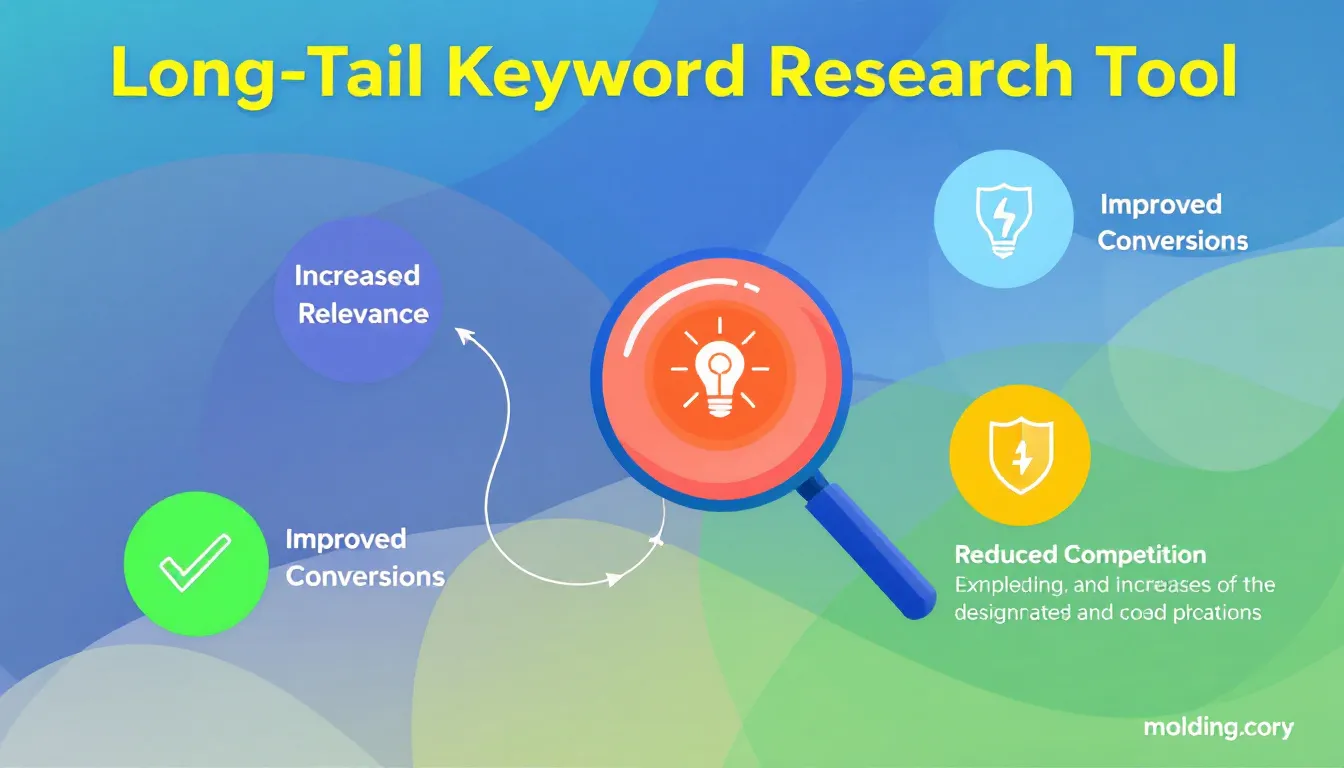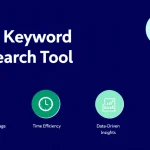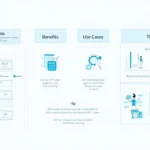Is this tool helpful?
How to Use the Long-Tail Keyword Research Tool Effectively
Our Long-Tail Keyword Research Tool is designed to help you uncover valuable, less competitive keywords that can boost your SEO strategy. Here’s a step-by-step guide on how to use this tool effectively:
- Enter the main topic: In the first field, input the primary subject for your keyword research. For example, you might enter “Sustainable Fashion” or “Home Automation Systems”.
- Specify the target audience (optional): To refine your results, you can enter your target audience in the second field. For instance, you could input “Eco-conscious millennials” or “Tech-savvy homeowners”.
- Define the content type (optional): In the third field, specify the type of content you’re creating. This could be “In-depth guide”, “Product comparison”, or “Tutorial video”.
- Set the desired number of keywords (optional): You can choose how many keywords you want the tool to generate. If left blank, it will default to 20.
- Generate keywords: Click the “Generate Keywords” button to start the process.
- Review the results: Once generated, you’ll see a list of long-tail keywords along with their search volume, competition level, and potential ranking difficulty.
- Copy and use the data: Use the “Copy to Clipboard” button to easily transfer the results to your preferred SEO tool or content planning document.
Unlocking SEO Success with Long-Tail Keyword Research
In the ever-evolving world of search engine optimization (SEO), staying ahead of the competition requires smart strategies and powerful tools. Our Long-Tail Keyword Research Tool is designed to give you a competitive edge by uncovering valuable, highly specific search terms that can drive targeted traffic to your website.
Long-tail keywords are longer, more specific phrases that users type into search engines when they’re looking for something particular. While they may have lower search volumes compared to broader terms, they often indicate higher user intent and can lead to better conversion rates. Our tool helps you identify these golden opportunities, allowing you to create content that precisely matches what your potential customers are searching for.
The Power of Long-Tail Keywords in SEO
Long-tail keywords are the hidden gems of SEO. They offer several advantages over short, generic keywords:
- Less competition: Longer, more specific phrases are typically less competitive, making it easier for your content to rank higher in search results.
- Higher conversion rates: Users searching with long-tail keywords often have a clearer idea of what they want, leading to better chances of conversion.
- Improved relevance: Long-tail keywords allow you to create highly targeted content that directly addresses user needs.
- Voice search optimization: As voice search becomes more prevalent, long-tail keywords align well with how people naturally speak and ask questions.
Benefits of Using Our Long-Tail Keyword Research Tool
Our tool offers a range of benefits that can significantly enhance your SEO and content marketing efforts:
1. Time-Saving Efficiency
Manual keyword research can be incredibly time-consuming. Our tool automates the process, allowing you to generate a comprehensive list of long-tail keywords in minutes rather than hours or days. This efficiency enables you to focus more on creating high-quality content and less on the tedious aspects of keyword discovery.
2. Data-Driven Insights
Each keyword suggestion comes with valuable metrics such as search volume, competition level, and potential ranking difficulty. These insights help you make informed decisions about which keywords to target, balancing potential traffic with the effort required to rank.
3. Niche Market Targeting
By allowing you to specify your target audience and content type, our tool helps you uncover highly specific long-tail keywords that cater to niche markets. This targeted approach can lead to higher engagement rates and better ROI for your SEO efforts.
4. Content Ideation
The long-tail keywords generated by our tool can serve as excellent inspiration for new content ideas. Each keyword phrase can potentially be developed into a full blog post, video, or product page, helping you create a content strategy that aligns perfectly with user search intent.
5. Competitive Advantage
By focusing on less competitive, highly specific keywords, you can find opportunities to outrank larger competitors who may be overlooking these valuable long-tail phrases. This strategy can help you carve out a strong presence in your niche, even in crowded markets.
Addressing User Needs and Solving SEO Challenges
Our Long-Tail Keyword Research Tool is designed to address common SEO challenges and meet the needs of content creators, marketers, and business owners. Here’s how it tackles specific problems:
Overcoming Keyword Competition
One of the biggest challenges in SEO is finding keywords that aren’t already dominated by large, authoritative websites. Our tool helps you discover less competitive long-tail keywords that still have significant search volume. For example, instead of targeting the highly competitive keyword “weight loss,” our tool might suggest “sustainable weight loss for busy professionals,” which has less competition but high relevance to a specific audience.
Improving Content Relevance
Creating content that truly resonates with your target audience can be challenging. By providing long-tail keywords based on your specified topic and audience, our tool helps you craft content that directly addresses user queries. For instance, if you’re writing about photography for beginners, the tool might suggest keywords like “best DSLR camera settings for night photography beginners” or “step-by-step guide to composition in landscape photography for novices.”
Enhancing Local SEO
For businesses targeting local markets, our tool can be invaluable. By incorporating location-specific terms into your keyword research, you can uncover long-tail keywords that cater to local search intent. For example, a bakery in Seattle might use our tool to find keywords like “gluten-free vegan bakeries in downtown Seattle” or “custom wedding cake designers near Pike Place Market.”
Optimizing for Voice Search
As voice search becomes more prevalent, optimizing for natural language queries is crucial. Our tool helps you identify question-based and conversational long-tail keywords that align with voice search patterns. For instance, it might suggest phrases like “how to fix a leaky faucet without calling a plumber” or “what are the best restaurants for date night in Chicago’s Loop?”
Practical Applications and Use Cases
Our Long-Tail Keyword Research Tool has a wide range of practical applications across various industries and content types. Here are some examples of how different professionals can leverage this tool:
1. Bloggers and Content Creators
A food blogger could use the tool to find long-tail keywords related to specific recipes or dietary preferences. For example:
- Main topic: “Healthy desserts”
- Target audience: “Health-conscious sweet lovers”
- Content type: “Recipe blog posts”
The tool might generate keywords like “low-sugar apple crisp recipe for diabetics” or “gluten-free chocolate cake with almond flour,” providing inspiration for new blog posts that cater to specific dietary needs.
2. E-commerce Marketers
An online store selling outdoor gear could utilize the tool to optimize product pages and category descriptions:
- Main topic: “Camping equipment”
- Target audience: “Beginner campers”
- Content type: “Product descriptions”
The tool might suggest keywords such as “lightweight backpacking tent for first-time hikers” or “easy-to-use camping stove for family trips,” helping the marketer create more targeted product listings.
3. Local Service Providers
A dental practice looking to attract more local patients could use the tool as follows:
- Main topic: “Dental services”
- Target audience: “Families in [City Name]”
- Content type: “Service pages”
This might yield keywords like “kid-friendly dentist for anxious children in [City Name]” or “same-day emergency tooth repair near [Neighborhood],” allowing the practice to create highly targeted landing pages for specific services.
4. Video Content Creators
A YouTuber focusing on tech reviews could leverage the tool to find video ideas and optimize titles:
- Main topic: “Smartphone reviews”
- Target audience: “Tech enthusiasts on a budget”
- Content type: “YouTube videos”
The tool might generate phrases like “best budget smartphones under $300 for mobile gaming” or “camera comparison: mid-range phones vs. entry-level DSLRs,” providing ideas for video content that addresses specific user interests.
Frequently Asked Questions (FAQ)
Q1: How often should I use the Long-Tail Keyword Research Tool?
A1: The frequency of use depends on your content creation schedule and SEO strategy. For businesses that publish content regularly, using the tool weekly or bi-weekly can help maintain a steady flow of optimized content ideas. For larger campaigns or website overhauls, you might use it more intensively during the planning phase.
Q2: Can I use the generated keywords for paid advertising campaigns?
A2: Absolutely! The long-tail keywords generated by our tool can be excellent for targeted PPC campaigns. They often have lower competition and cost-per-click rates while potentially yielding higher conversion rates due to their specificity.
Q3: How do I choose which long-tail keywords to focus on?
A3: Consider the balance between search volume, competition level, and relevance to your content. Prioritize keywords that have a decent search volume but lower competition, and that align closely with your content topic and target audience. Also, consider the user intent behind the keyword and whether your content can satisfy that intent.
Q4: Can I use this tool for international SEO?
A4: Yes, our tool can be valuable for international SEO efforts. When entering your main topic, consider including location-specific terms or using the local language of your target market. This can help you discover region-specific long-tail keywords that are relevant to your international audience.
Q5: How does this tool differ from other keyword research tools?
A5: Our tool specializes in generating long-tail keywords with a focus on less competitive, highly specific phrases. It takes into account your target audience and content type to provide more relevant suggestions. Additionally, it offers a streamlined process for quickly generating a large number of keyword ideas, saving you time in your SEO research.
Q6: Can I integrate the results with other SEO tools?
A6: Yes, the “Copy to Clipboard” feature allows you to easily transfer the generated keywords to other SEO tools or spreadsheets. You can then import these keywords into tools for further analysis, rank tracking, or content planning.
Q7: How can I use these long-tail keywords in my content?
A7: Incorporate the keywords naturally into your content, including in titles, headers, meta descriptions, and throughout the body text. Use them to guide your content structure, ensuring that you’re addressing the specific questions or topics implied by the long-tail phrases. Remember to maintain a natural flow and prioritize user experience over keyword density.
Q8: Is it better to target multiple long-tail keywords or focus on one per piece of content?
A8: It’s often beneficial to target multiple related long-tail keywords in a single piece of content, as this can help you cover a topic comprehensively and attract a wider range of specific searches. However, ensure that the keywords are closely related and that your content remains focused and valuable to the reader.
Q9: How long does it take to see results from targeting long-tail keywords?
A9: The timeline for seeing results can vary depending on factors like your site’s authority, content quality, and the competitiveness of your niche. However, due to their lower competition, you may start seeing results from long-tail keyword targeting more quickly than with broader, more competitive terms – often within a few weeks to a couple of months.
Q10: Can this tool help with featured snippet optimization?
A10: Yes, many long-tail keywords, especially question-based ones, are excellent candidates for featured snippet optimization. Use the generated keywords to create content that directly answers specific questions, and structure your content with clear headings and concise, informative paragraphs to increase your chances of earning featured snippets.
By leveraging our Long-Tail Keyword Research Tool and following these insights, you can significantly enhance your SEO strategy, create more targeted content, and attract highly engaged visitors to your website. Remember, successful SEO is an ongoing process of research, implementation, and refinement – and our tool is here to support you every step of the way.
Important Disclaimer
The calculations, results, and content provided by our tools are not guaranteed to be accurate, complete, or reliable. Users are responsible for verifying and interpreting the results. Our content and tools may contain errors, biases, or inconsistencies. We reserve the right to save inputs and outputs from our tools for the purposes of error debugging, bias identification, and performance improvement. External companies providing AI models used in our tools may also save and process data in accordance with their own policies. By using our tools, you consent to this data collection and processing. We reserve the right to limit the usage of our tools based on current usability factors. By using our tools, you acknowledge that you have read, understood, and agreed to this disclaimer. You accept the inherent risks and limitations associated with the use of our tools and services.







